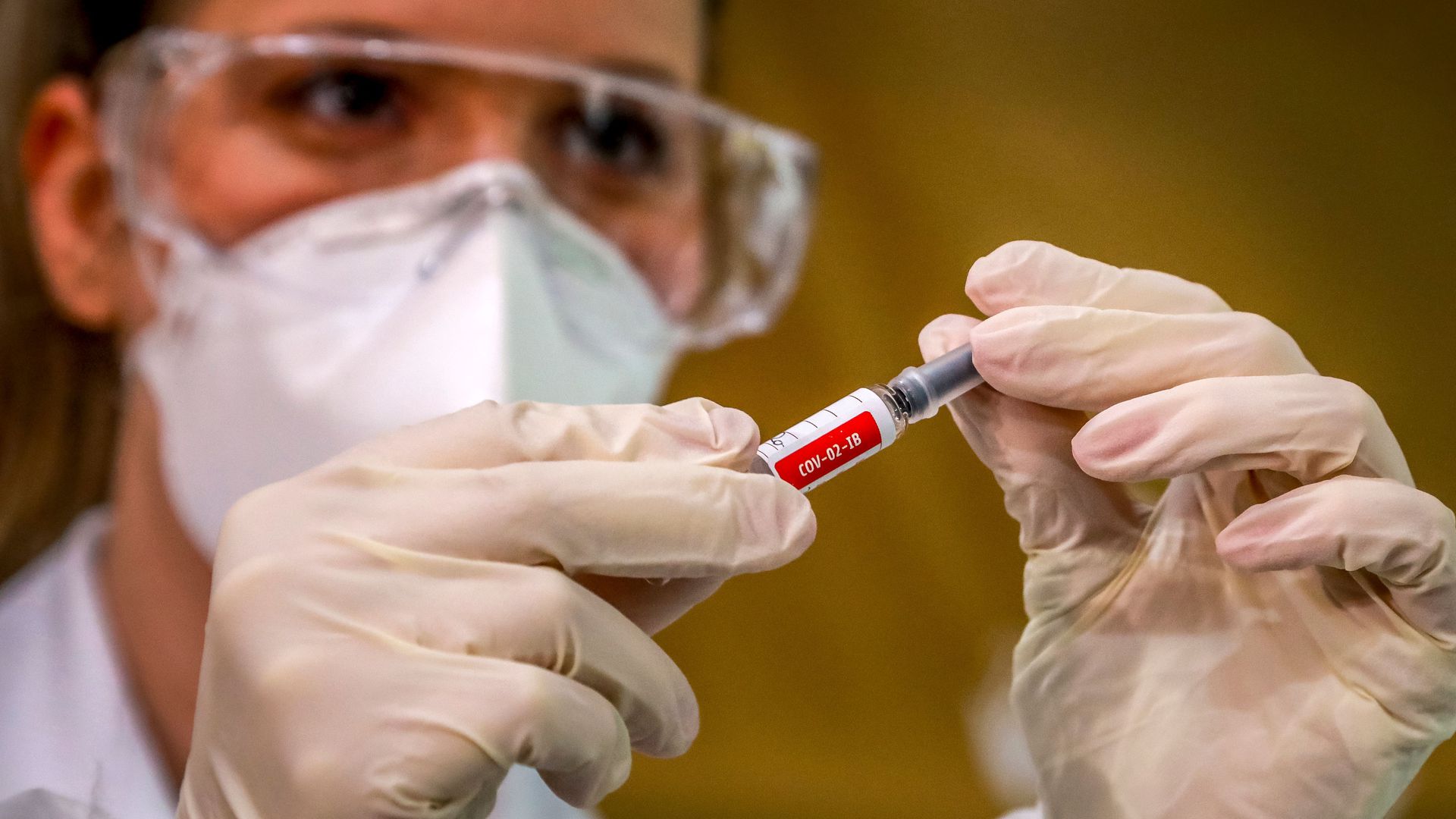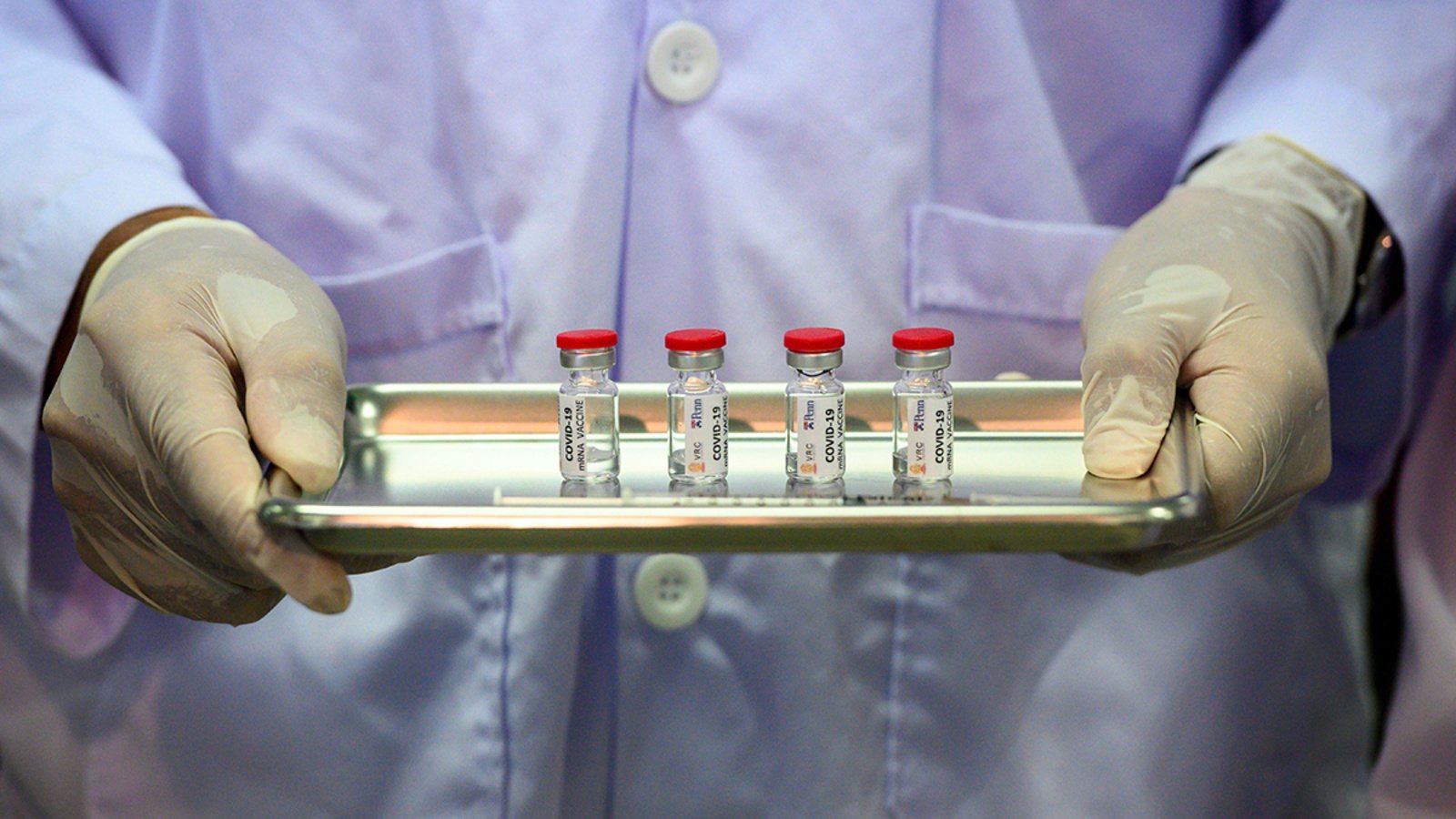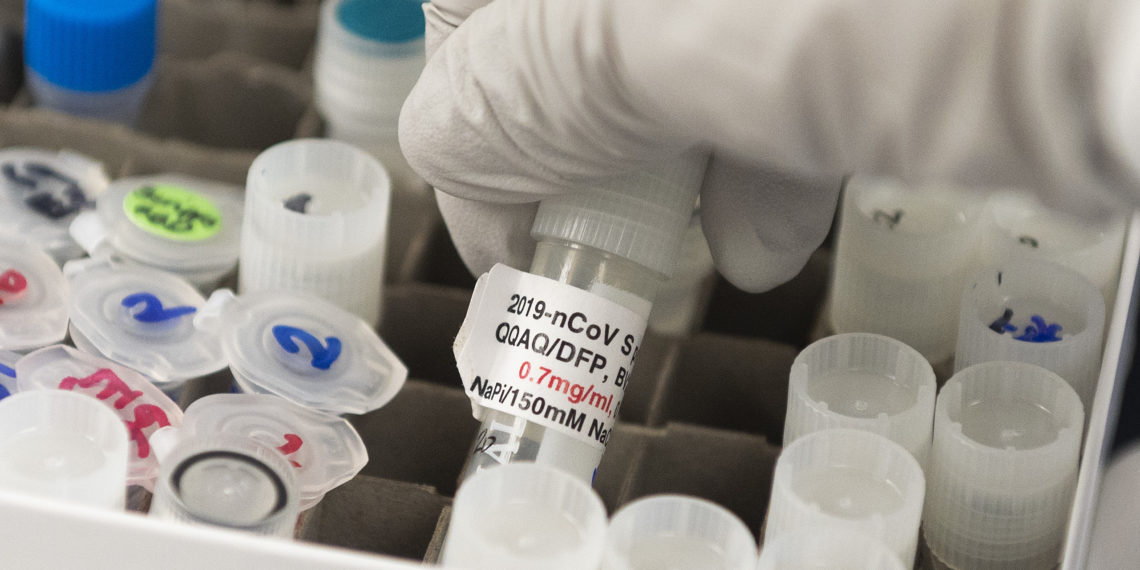Around the world, epidemiologists and infectious disease researchers are engaged in a race. Day in, day out, these scientists are working as hard as they can to come up with a solution to the COVID-19 pandemic that has killed nearly 800,000: a vaccine.
Last week, Peter Pitts, a former FDA Associate Commissioner for External Relations, sat down with The Globe Post to give us a glimpse into the arena of competitors — public and private corporations and pharmaceutical companies — who are racing against the clock.
Pitts served as an Associate at the FDA from 2002 to 2004. Later, he co-founded and currently serves as president of the Center for Medicine in the Public Interest, a non-profit healthcare think tank. He has been outspoken throughout the COVID-19 pandemic, providing public health guidance and research across the US.
The following interview has been lightly edited for length and clarity.
The Globe Post: What is your hope for an effective COVID-19 vaccine?
Pitts: I think that a vaccine that — as the FDA has stated in its guidance– reaches 50 percent [effectiveness at decreasing or eliminating the virus’ severity] against a placebo is what we need. Fifty percent or higher.
And I think what is equally important to that science, in terms of getting the vaccine science nailed down, is making sure that we have the chops to manufacture one or more vaccines to scale because this is a global pandemic. And then it can be properly distributed and used rapidly based on smart considerations of vaccine priority.
The Globe Post: What are the companies that you’re hearing are in the most advanced stages of testing that you think will probably cross the finish line and be able to get a vaccine out there first?
Pitts: Well, the programs that I have the greatest faith in that are now in large phase three [clinical] trials [where experimental vaccines are tested in larger numbers of human subjects]: The Pfizer BioNTech program, the AstraZeneca Oxford program, Johnson and Johnson, Merck; the names that we all recognize.
I have faith that these programs will be the ones to cross the finish line first as opposed to programs like Moderna. And the reason why is because the large companies obviously have sound science; all the companies have very interesting, good science, Moderna included.
Updated #infographic on 231 coronavirus vaccines being tracked by the London School of Hygiene and Tropical medicine@AFP pic.twitter.com/bh4BueKMWS
— AFPgraphics (@AFPgraphics) August 18, 2020
But the large players have done this before. They understand the requirements and the difficulties of manufacturing and of manufacturing to scale and making sure that the goods that they manufacture get to where they need to be. They also understand how to work within the existing regulatory process, both in the US, Europe, and elsewhere, where companies like Moderna don’t.
Moderna has never had a single product work its way through the FDA, never manufactured a single pill or single vaccine dose, so my bets are on the large multinational players: good science, good manufacturing chops, and a very solid understanding of the regulatory process.
The Globe Post: What would you say is the ideal way for the vaccine to start to be disseminated to the population?
Pitts: People always ask me who’s going to get the first vaccine and the answer is I don’t care. I just think that as long as we get a robustly developed, manufactured, and regulated vaccine out there, that’s what victory looks like to me.
You asked me about priority in terms of who gets vaccinated first, second, third, and so forth. So, the first tranche of people, at least on my list, are the at-risk population: the older population, population with pre-existing health care conditions, respiratory issues, and the elderly.
Clearly, what we’ve learned since the beginning of the pandemic is how to keep that population alive when they get the virus. Early on, that population was dying in the hospital or at home or in nursing homes. It’s a horrible tragedy and we’ll never be able to undo that. But we’ve learned since then how to deal with it with better therapeutics as well.

I think the second tranche are the essential worker population: medical workers, firefighters, police officers, and teachers, and obviously essential can be broadly defined, but I think teachers have to be a part of that discussion if you want to open up schools. And I say teachers rather than students because a younger population, say you know from zero to 20, when they get COVID-19, either they’re asymptomatic or these symptoms are not as severe as in an older population. So, I think that they would certainly be a priority but not as high priority as teachers or other people that work in schools and universities.
And then the third tranche would be everybody else.
But what we’ve gotta think about is that about 30 percent of the US population, in a recent Gallup poll, said that even when there is a vaccine, they’re not going to get it. And that’s not acceptable because having a vaccine that nobody uses is not a public health victory.
A very important part of that 30 percent are communities of color, that have great suspicions about government and health care and vaccines. Some of it is historical and some of it is urban legend but it actually does exist, this suspicion.
We have to deal with it aggressively and respectfully because these communities also have a much higher COVID-19 infection rate. So it’s a perfect storm of public health crisis where we have a highly infected community unwilling to get vaccinated. We’ve got to deal with that, which means we need a very strong and multifaceted public education campaign.
And also, it’s hard to think about this when it’s 10,000 degrees and humid outside. We are, in fact, inching closer to flu season. So it’s also important that people remember the urgency of getting a flu shot. Because if you come down with flu-like symptoms, your doctor is going to have to assume you have COVID-19. And that’s why it’s important to either say “Maybe it is [COVID-19] because I got the flu shot,” or, “No, I didn’t [get a flu shot],” which will make the doctor’s job that much more difficult so there are a lot of things happening simultaneously that make getting a flu shot more important.
We’re also moving ahead on the non-vaccine therapeutic front, whether it’s products like Remdesivir, or more and better research into products that contain convalescent plasma [which is plasma from blood that contains antibodies from COVID-19 survivors]. I think a lot of those programs are very interesting.
And, of course, the eternal question of what’s the real story when it comes to hydroxychloroquine. So, there are a lot of things out there that potentially could be very good news. But, we have to keep our eye on the prize and move forward.

The Globe Post: What do you think is a realistic timeline for the approval and production of a vaccine?
Pitts: Right now a lot of the companies that are deep into phase three are doing what’s called manufacturing at risk. And that means even before their programs are complete, even before they know for certain that their vaccines are safe and effective, even before they get any data to the FDA, they’re manufacturing tens of millions and hundreds of millions of doses, with the theory that if the products pass scientific and regulatory muster they’ll be that much further ahead of the game.
But it also means that if the programs fail, all those doses will have to be destroyed. And that’s one of the important reasons behind operational work speed is that it helps to underwrite the risk that everybody is taking to make sure that people have access to vaccines quicker once they’re approved.
I think we’ll actually have approved FDA vaccines, more than one, likely early in 2021: February or March. And that’s incredibly fast because most times, these types of programs take five years to develop, so it really is warp speed.
And people poo poo me when I say [there won’t be a vaccine] until next year, but even that is an amazing accomplishment, in and of itself.
The Globe Post: As a former FDA associate commissioner, do you think that the FDA approval process will be sped up?
Pitts: The regulatory process cannot be rushed, but it can be expedited. And that’s a distinction with a difference because when you rush, you miss things, you cut corners, and you make mistakes and that’s not acceptable.
When you expedite you put the best talent to bear full time on the task at hand. And that’s what’s happening inside the biopharmaceutical industry. And that’s what’s happening inside the FDA. I have complete faith that the FDA would never allow a vaccine to pass through the agency without a rigorous and robust review.
The Globe Post: Russia announced last week that they have supposedly identified a successful vaccine. There’s a lot of skepticism across the world that they’re announcing a vaccine just to win the international race. Do you think that skepticism is healthy? How do you think we should be interpreting that announcement?
Pitts: The Russian vaccine is a riddle wrapped in a mystery inside of an enigma, as Churchill used to say. It’s more of a Molotov cocktail than it is a helpful public health instrument. It’s playing Russian roulette with people’s health. There’s no data. There’s no science. There’s no transparency.
Russian officials in Moscow say they've offered "unprecedented cooperation" with the US multi-agency body set up to accelerate access to effective Covid-19 vaccines and treatments. But they say the "US is not currently open" to the Russian medical advances https://t.co/gEXAd8gqIl
— CNN (@CNN) August 13, 2020
There’s no listing in the [World Health Organization] database of any phase three trial coming out of Russia. Testing was done on soldiers which I believe is highly unethical. And, this is the same government that’s been accused by the West, plausibly, of trying to hack into Western databases to steal COVID-19 vaccine data.
There’s no FDA in Russia; everything comes out of the Ministry of Health. It’s historically corrupt, and they generally approve medical products with little or no testing. So this is all going the wrong way. If the Russians want us to believe that they’ve come up with the world’s first vaccine, they have to show us the data and let it be vetted by the FDA and experts all around the world.
I don’t believe in vaccine nationalism — this isn’t about who gets there first. It’s about all of us getting there as quickly as possible, in the most appropriate way possible.






















